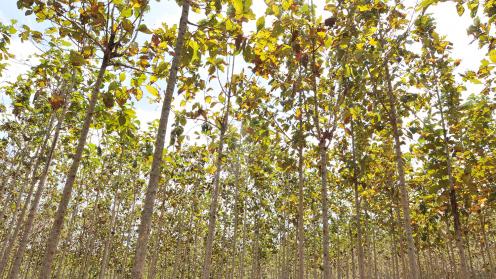About
The IUFRO’s 10-year global assessment shows REDD+ has had positive impacts—but the nature and magnitude of changes are hard to measure. Complicating this picture is the complex governance of forests, and the need to address poverty and inequality.
All coverage

Stopping forest loss and restoring degraded forests are among the key actions needed to combat climate change, conserve biodiversity, and protect human health and the environment. Deforestation and forest degradation account for approximately 11% of global carbon emissions. Around one-third of all these emissions is absorbed annually by forests—so losing them will have a big impact.
Parties to the UN Framework Convention on Climate Change (UNFCCC) created the REDD+ framework to guide activities in the forest sector. REDD+ activities are essential for countries to meet their commitments under the Paris Agreement on climate, as well as achieving other international commitments under the Sustainable Development Goals (SDGs), especially SDGs 13 on climate action and SDG 15 on life on land.
The International Union of Forest Research Organizations (IUFRO) launched its report about the outcomes of more than 10 years of REDD+ implementation at this event. This global assessment report, prepared by IUFRO’s Global Forest Expert Panel (GFEP), showcased the effects of REDD+ implementation on forests, carbon, biodiversity, and people. Authors of the report spoke about the current challenges faced and trade-offs in implementing REDD+, and look to possible pathways for the future.
Participants at this event heard from the report’s lead authors: John Parrotta, IUFRO President; Constance McDermott, University of Oxford; Marieke Sandker, Food and Agriculture Organization of the UN (FAO); Valerie Kapos, UN Environment Programme World Conservation Monitoring Centre (UNEP-WCMC); Bhaskar Vira, University of Cambridge; and Stephanie Mansourian, IUFRO consultant. Local experts from India, Malaysia, the Philippines, Chile, Costa Rica, and Brazil will share their experiences via video messages. Development partners from the UNFCCC and the Government of Germany spoke about lessons learned regarding donor support and rulemaking.
The launch event took place during the XV World Forestry Congress in Seoul, Republic of Korea, on 4 May 2022, 5.30 – 7 PM KST (GMT+8).
This was a hybrid event. Participants in the XV World Forestry Congress were able to register to attend in person after the WFC begins.
Funding for Earth Negotiations Bulletin coverage of this event was provided by IUFRO.
To receive free coverage of global environmental events delivered to your inbox, subscribe to the ENB Update newsletter.

